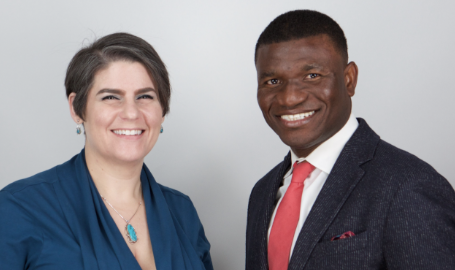
The Gestalt’s Principle (NLP Certificate Course - Session 8) (Recorded Online Session)
Recorded Online Session
Neuro-Linguistic Programming (NLP) Certificate Course
The Mother of Family Therapy, Virginia Satir; The Father of Gestalt Therapy, Fritz Perls; And the prominent psychiatrist, Milton Erikson, were studied to determine why they were the best in their respective field.
Common patterns in both language and thought were found, and this was the start of an organized body of knowledge that has been used by millions of clinicians, throughout the world, as adjunctive treatment. In terms of its adjunctive psychotherapeutic use, NLP has been validated and recognized by the United Kingdom Council for Psychotherapy.
This is the eighth session in the 12-Session NLP Certificate Course.
To register for the entire Certificate Course, please click here.
You will then learn adjunctive tools to help you get unstuck when the more known evidence-based and traditional treatment modalities fail to work.
There are NO CEUs attached to it.
This Certificate Course is intended only for clinicians who are motivated enough to learn these new skills that may become readily handy when least expected.
“What I am is good enough if I would only be it openly.”
- Carl Rogers
This week's session will cover:
- Well Formed Outcomes
- Future Pacing
- The Lazarus Technique
- State of Mind
- The Wise Mind Model
View Below for the Full Curriculum
Join the SWEET Institute for this life-changing Certificate Course.
At the end of this Certificate Course, you will:
- Better use metaphors to better communicate with your patients and clients.
- Better help your patients and clients uncover their limiting beliefs.
- Help your patients and clients use the power of associations and anchoring as adjunct treatment for their trauma and anxiety.
- Help your patients and clients finally understand why they are not broken and how they can empower themselves.
- Learn adjunctive treatment to help your patients and clients learn how to better regulate their emotions, achieve their goals more efficiently, and become more resilient in life.
Here’s What Attendees Have to Say about SWEET Webinars:
"I am delighted to participate in the SWEET educational practice. It has been easy and pleasant throughout. There is always a bounty of information. Thank you! I am excited to implement my new skills into practice."
- Kim, LMSW
"Love breadth of material, as well as usefulness in actual practice. The presenter’s expertise in linking theoretical frameworks to symptom-based assessment and formulation. Can’t wait to attend a treatment technique training with him. Has motivated me to use CBT more frequently in practice from prior seminars."
- Julie, LCSW-R
"Have only attended one other webinar and it was most helpful in broadening my thinking and considerations. Showed me how much there is for me to learn. I appreciate your presence and goal of creating a professional learning and support community."
- Sharon, LSCSW
"I believe I can and certainly will use the techniques and working with my patients who have significant issues with anxiety. I also find it very helpful to remember the instructor's reminders to provide clients with manageable tasks that can lead to successful behavior change and such, that improve the quality of life for them."
- Louis, LCSW
"I enjoyed the webinar and could not believe how quickly the time flew. The fact that we were all kept engaged and every comment and question is acknowledged or answered."
- Neela, LMSW
Join Us Now!
Session Dates and Topics:
Week I: NLP: Its Purpose and The Basic Ideas - Saturday, September 12, 2020 (4pm-6pm EDT)
- NLP and Its Purpose
- Cognitive Biases
- Presuppositions
- The Dawn and Enlightenment
Week II: Our Process of Interpretation and Reality - Saturday, September 19, 2020 (4pm-6pm EDT)
- Our Process of Interpretation
- The Art of Non-Conformity
- Assessing Reality: Abstract Questions
- Creative New Norms
Week III: The Human Experiential Model - Saturday, September 26, 2020 (4pm-6pm EDT)
- The Human Experiential Model
- The Meanings in Mind
- 3 Ways in Which We Relate
- The Unhealthy Comparison Model
Week IV: Frameshifting and The Triangulation Effect - Saturday, October 3, 2020 (4pm-6pm EDT)
- Cause and Effect: The Triangulation Effect
- Frameshifting
- The Human Experience Model (Part II)
- Process of Personal Development
Week V: The 5th Season of Life - Saturday, October 10, 2020 (4pm-6pm EDT)
- Plato’s Analogy of The Cave
- Goals and Outcomes
- Present State vs. Desired State
- The 5th Season of Life
- Outcome vs. Direction
Week VI: The Lazarus Technique and The Wise Mind Model - Saturday, October 17, 2020 (4pm-6pm EDT)
- Well Formed Outcomes
- Future Pacing
- The Lazarus Technique
- State of Mind
- The Wise Mind Model
Week VII: The 3 Dimensions of State - Saturday, October 24, 2020 (4pm-6pm EDT)
- Empowerment vs. Disempowerment
- The 3 Dimensions of State
- The Internal State Loop
- Interpretations
Week VIII: The Gestalt’s Principle - Saturday, October 31, 2020 (4pm-6pm EDT)
- The Gestalt’s Principle
- Immediacy
- The Determinants of State
- Self-Regulation
- Motivation for Effective Self-Regulation
Week IX: The Alphabet Game - Saturday, November 7, 2020 (4pm-6pm EST)
- The Alphabet Game
- The Dissociation Technique
- Representational Systems
- Pacing and Leading
- Pacing, Leading, and Rapport
- Eye Accessing Cues
Week X: The Meta Mirror - Saturday, November 14, 2020 (4pm-6pm EST)
- Submodalities
- Perceptual Positions
- The Meta Mirror
- The Connectivity/Connection Principle
Week XI: Anchoring: Forming New and Breaking Old - Saturday, November 21, 2020 (4pm-6pm EST)
- Anchoring
- Mechanism of Negative Anchors
- Formation of Belief Anchors
- Breaking Belief and Negative anchors
- Keys to Successful Anchoring
Week XII: The 4 Levels of Communication and The Mehrabian Model - Saturday, November 28, 2020 (4pm-6pm EST)
- Communication Skills
- The Hearts and Minds Principle
- Congruence
- The Mehrabian Model
- The 4 Levels of Communication
- The Communication Self Awareness Checklist
- Intonation and Totality Patterns
- The Blocks to Active Listening
Join Us Now!
Your Facilitator and Co-Facilitator

Mardoche Sidor, MD, is a Harvard-trained Quadruple Board Certified Psychiatrist, Assistant Professor of Psychiatry at Columbia University, School of Physicians and Surgeons, trained in and taught all major psychotherapeutic modalities, including and not limited to CBT, DBT, Family Systems, and Psychodynamic Psychotherapy. He is also the author of 11 books including Journey to Empowerment, Discovering Your Worth, The Power of Faith. and, The Art of Living. Dr. Sidor has worked both as a primary care physician and Medical Director in three different settings, including a Chief Medical Officer of the Center for Alternative Sentencing and Employment Services (CASES). He is a main facilitator for the SWEET Institute. His 11th book, entitled, NLP for Clinicians is now available to the public.
Karen Dubin, PhD, LCSW, is a Columbia-trained Social Worker with wide clinical, teaching, and supervision experience. She also has a background in management, mentorship, and leadership that spans more than 20 years. Her added passion is in advocacy and coaching. She has previously held Executive level positions, and two other directorships in different organizations. She is currently Adjunct Faculty at Columbia University School of Social Work and Adelphi University School of Social Work. She also maintains a private practice, provides supervision, and clinical and management training. She is also a personal and executive-level coach. She is a main facilitator for the SWEET Institute.

"The entire experience was helpful, and gave me tips on how to self care that I can share with my colleagues and clients. I am so grateful to be a part of SWEET. It is educational, well presented, and I learn something new or forgotten with every webinar that I attend. Dr. Sidor has a way of teaching that makes it enjoyable. That is a gift rarely seen in someone so brilliant."
– Vilma, LCSW-R

"SWEET offers a special way of presenting the information. We are so engaged in the process. It is such an enjoyable way to learn. Karen sharing her experiences with clients. Very memorable and educational. The entire process was wonderful. Loved this presentation. Very informative. Love being a SWEET member. Best decision I have ever made!"
– Michelle, LCSW-R

"I thought the presentation was well thought out and organized and I thought the presenter was excellent in conveying the course material. The course was valuable to me in my work with clients who experience anxiety because it gave me a structured framework to work from and some tangible techniques to use."
– Caren, LCSW

"There was a lot of practical material I can implement with my clients. The facilitator was excellent, covering a lot, and interactive with the participants actively. The clarity and usefulness of how to get unstuck, both clients and therapists, the role play. I felt welcomed, and my personal questions regarding technical aspects of the webinar were answered quickly. Great way to spend 2 hours productively, without feeling rushed."
– Rachel, LCSW-R

"Very informative and personable. I felt like I was in an actual classroom. I loved it. The tools that were offered to use with my patients. It is so helpful. I felt at my wits end when working with clients suffering with anxiety; now I have new tools."
– Denise, LCSW

"I found it to be captivating and engaging. I also found that it provided techniques to actually use. Whereas other trainings do brief overviews and do not offer much to take away, this was great. I also loved how people's questions were answered, and how even though it was virtual, people were engaged."
– Megan, LMSW
89% of SWEET Webinar Attendees feel that the courses give them practical information they can use in their everyday life

Join Us Now!
Frequently Asked Questions







